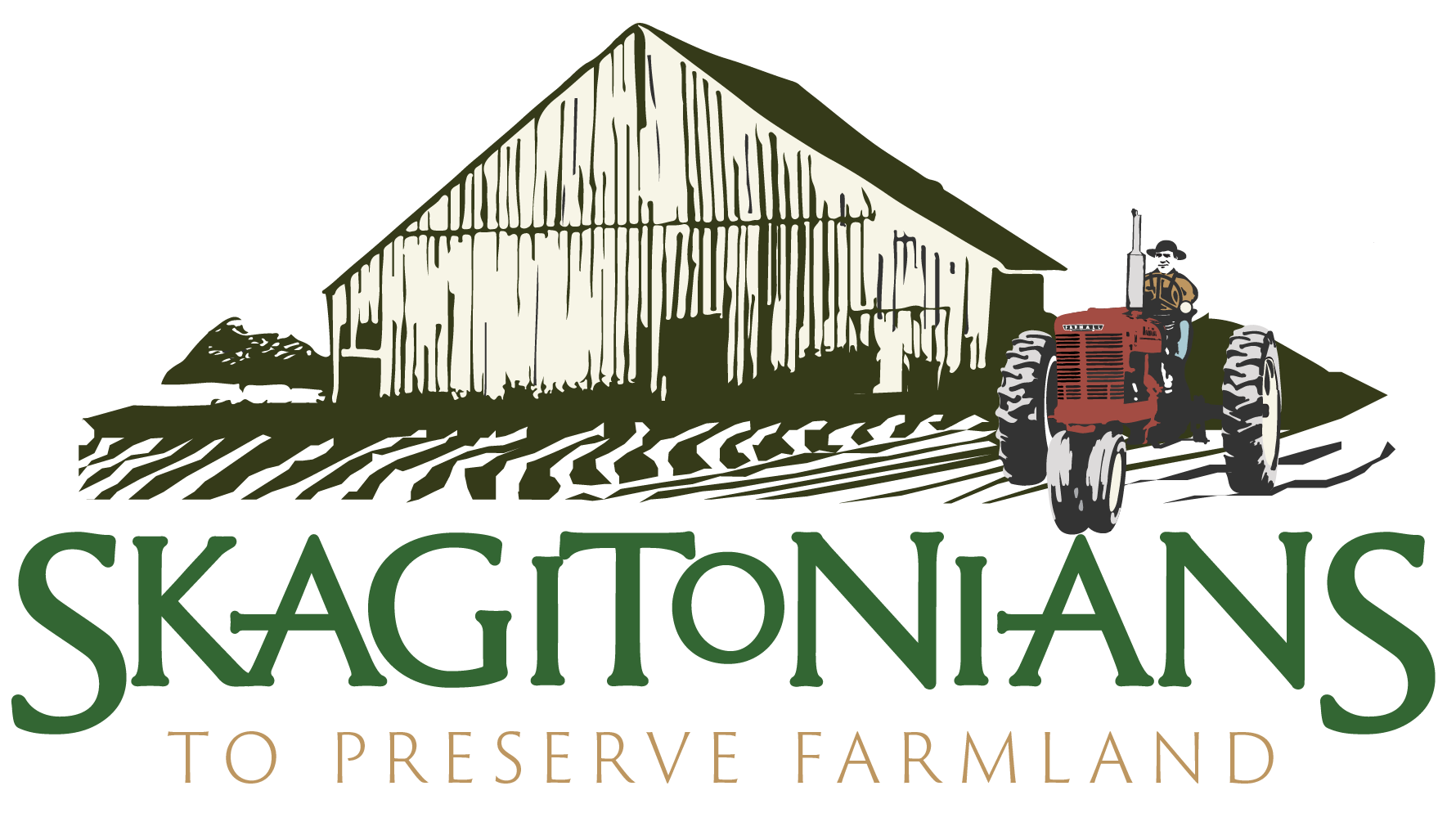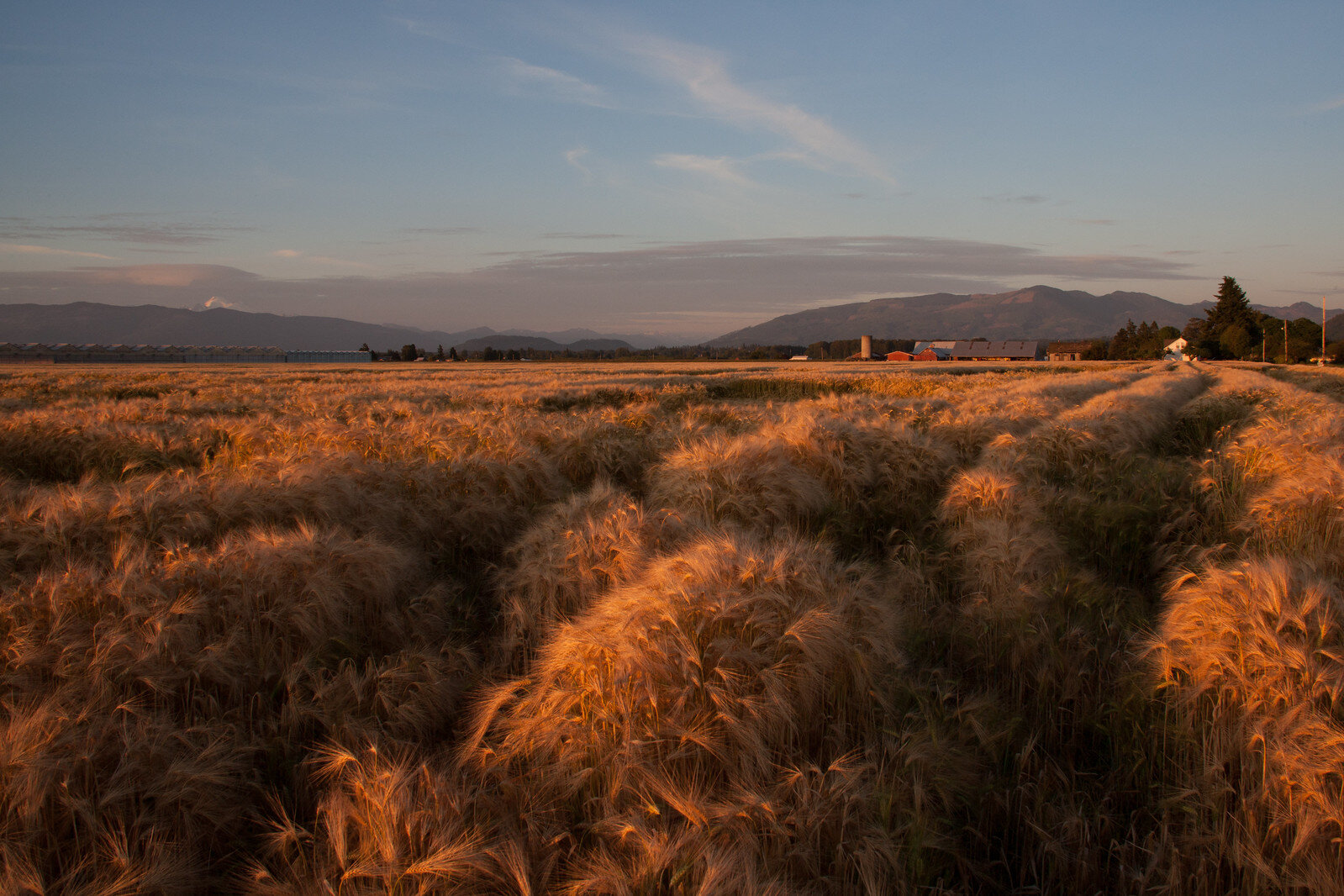Our Story
Five local farm families and their supporters joined together to found Skagitonians to Preserve Farmland (SPF). As reflected in the name, our mission is to ensure the continued economic viability of Skagit County agriculture and its required infrastructure. It is a mission as compelling and critical today as it was when those first five families and their friends gathered together to defeat a major conversion of farmland.
Vision
Farming is valued and economically successful in Skagit County. The County is an economically and ecologically healthy and dynamic region because of farming and its associated benefits. The community understands the importance of protecting Skagit County’s farmland base and the farmers who depend upon it. The region’s residents and leaders look to Skagitonians to Preserve Farmland as a thoughtful and articulate voice of conscience and pragmatism. Through SPF’s efforts, a legacy of successful farmers and protected farmland will be guaranteed for present and future generations.
Mission
Skagitonians to Preserve Farmland exists to ensure the economic viability of Skagit County agriculture and its required infrastructure through farmland protection, advocacy, research, education, and public awareness.
SPF’s endeavors are guided by key values–a set of beliefs that frame our work. These values are reflected in our past accomplishments and are integral to our continued commitment to the future.
Stewardship of the Land
We believe sustainable farming practices support wildlife, fish, water and land conservation efforts.
Strategic and Collaborative Leadership
We believe in working collaboratively with community leaders and policy makers at the local, state and national levels in an optimistic, visible and future- oriented way.
Being Responsive, Responsible and Persistent
We believe that all our decisions and actions should be responsible to our community’s heritage and quality of life for this and future generations.
Being Community-Based, Civic-Minded and Visible
We believe we have a responsibility to participate actively in local land use planning processes and in community events to ensure the success of our mission.
Economic Viability and Quality of Life
We believe in working together for a healthy community that supports farming as a provider of community benefits such as open space, wildlife, clean water, and a robust viable economy.
Being Financially Prudent
We believe in conducting our business with integrity and fiscal responsibility.
Skagitonians to Preserve Farmland: A Brief History
Farming roots run deep in the rich, fertile soil of the Skagit Valley. In the 1860s, early European settlers began reclaiming parts of the floodplain for fields to grow oats and barley. By the turn of the last century, a network of dikes, drainage ditches and tide gates supported thousands of acres of agricultural land.
Over the years, the Skagit Valley has been recognized as having some of the most agriculturally productive and valuable farmland in the world—ranked in the top 2 percent of soils. More than 80 different crops plus livestock and dairy products are produced here. More flower bulbs are grown here than any U.S. county. It’s a major producer of vegetable seeds shipped throughout the world. However, poised between the major metropolitan areas of Seattle and Vancouver, B.C., Skagit County has faced, and continues to face, growing population, development and regulatory pressures. Farmers confront additional economic pressures from unpredictable crop prices, competition from corporate agriculture and climatic uncertainties. The toll on Skagit agriculture can be measured by the loss of farmland: More than 150,000 acres were farmed in the 1940s; today it is down to less than 90,000.
The challenge to preserve this unique, irreplaceable agricultural valley came to a head in 1989. Spurred by an unsuccessful attempt by the Trillium Corporation to develop a 280-acre theme park on prime farmland, known as Hollyhock Farms, five local farm families and their supporters joined together to found Skagitonians to Preserve Farmland (SPF). As reflected in the name, our mission is to ensure the continued economic viability of Skagit County agriculture and its required infrastructure. It is a mission as compelling and critical today as it was when those first five families and their friends gathered together to defeat a major conversion of farmland.
During SPF’s formative years, the first Executive Director, Lisa Nielsen, initially served in a volunteer capacity. Board members willingly pitched in to help cover monthly expenses by digging into their pockets and literally tossing $20 bills on the table.
One of SPF’s first efforts was to advocate for Skagit County’s Right to Farm Ordinance, which was enacted in 1991. The following year, with private foundation and county grant support, SPF compiled and published Farmland Protection in Skagit County: Program Options and Recommendations, a document that has since helped shape Skagit County’s current development code. By 1995, the part-time Executive Director position had evolved to a sustainable full-time position. That year, Bob Rose joined SPF as the second Executive Director. Upon his retirement in 2006, Allen Rozema assumed the position of Executive Director.
From our earliest grass-roots beginning, SPF recognized that a successful farmland protection strategy would be based upon a strong core of community support and public opinion in favor of protecting and preserving farmland. A 1996 survey of registered voters in Skagit County, sponsored by SPF, indicated strong support for farmland preservation, including support for an increase in property taxes to purchase development rights on farmland. The following year the county adopted an ordinance to increase property taxes for the purpose of preserving farmland, which led to the creation of Skagit County’s Farmland Legacy Program (FLP). Since 2008, thanks to a generous donor, SPF has been successfully partnering with the FLP to retire development rights on more than 361 acres of prime farmland in one of SPF’s priority areas, south of the City of Mount Vernon. Since its inception in 1997, the FLP has been able to protect more than 15,000 acres of farmland and has been identified as the top farmland preservation program in Washington State by the American Farmland Trust.
Throughout the past three decades, SPF has grown into a credible and respected voice for Skagit agriculture. Our base of support has expanded from 32 members in the beginning to over 1,200 individuals, organizations and businesses from throughout Skagit County, Western Washington and the United States. SPF is governed by a diverse 17-member Board of Directors, providing guidance, oversight and stewardship for the commitment and trust placed in SPF by our members and donors. By policy, a majority of the board is made up of farmers. Two board members from multi-generational farms in the Skagit Valley have received gubernatorial appointments: past Board President Steve Sakuma, CEO of Sakuma Brothers Farms, serves on the Governor’s Puget Sound Partnership Leadership Council. Past Board President Bob Hart, a farmer and former Skagit County Commissioner, was appointed to and chaired the Washington State Office of Farmland Protection Taskforce before his passing in late 2012.






